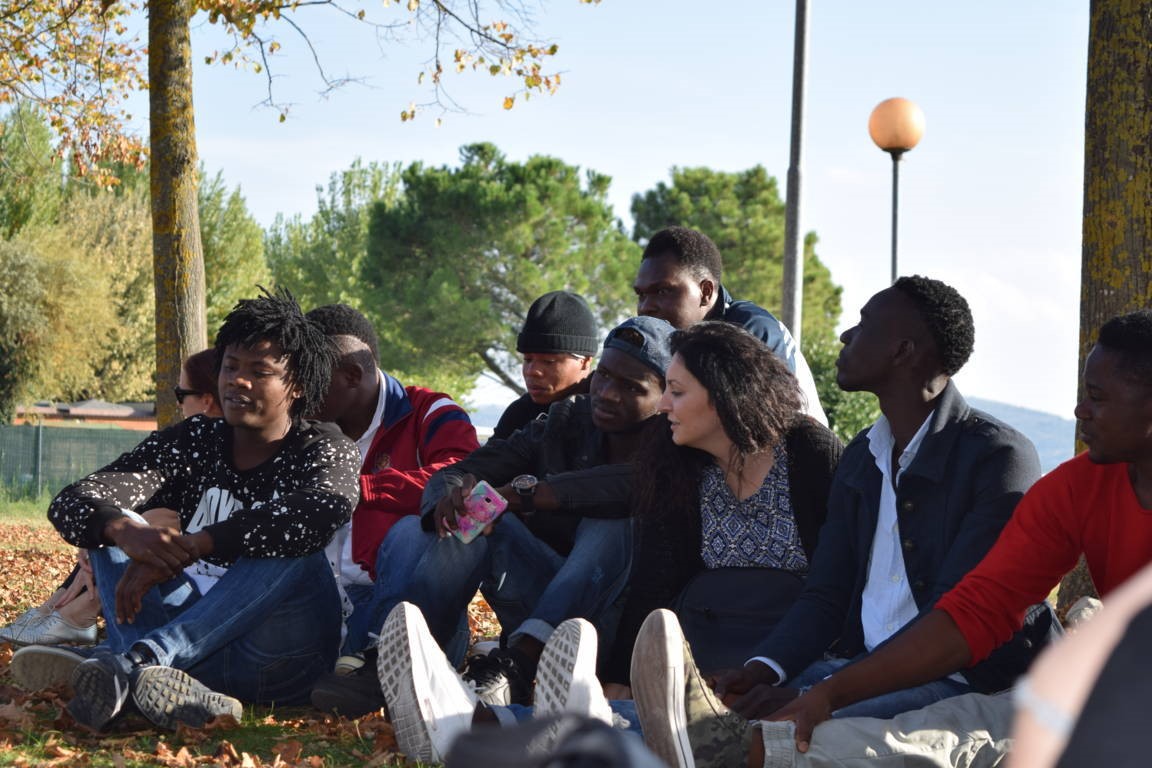Rosella Baldelli - 31.10.2017 12:05
Hier tauschen wir unsere Ideen aus! / Here we share our ideas!
Ilenia Pastorelli - 12.12.2017 14:56
Migration: then and now
By Ilenia Pastorelli, LSP Assisi/Italy
As we know, in the last few years one of the biggest problems has been that of migration from African countries, especially Libya and Nigeria but also from Syria, Iraq and Afghanistan, to European countries.
However migration has always been a very diffused phenomenon, for example poor people in Italy left the country looking for better living conditions and a respectable job and emigrated to other European countries or the USA and South America between the 1880s and the 1970s.
Their situation was not the best, because many emigrants had to face the problem of a language they did not know, of finding a place to live, but most of all they suffered from social discrimination and a sort of racism. In fact the Italians, like other emigrants, were seen by the host countries as people that deprived them of their jobs.
Later the situation changed and Italy became a country of immigration.
In my own opinion it is a paradox: because on the one hand we host young foreign graduate students that find a scarcely satisfying job, on the other hand we let our young leave, thinking that only in foreign countries they will be able to obtain a job that suits them. However it is not true, because when they go to another country they find it is not so easy to obtain gratifying work and sometimes they feel forced to accept any kind of job, even the worst ones.
It does not mean that we should take care of our own needs, ignoring those of the immigrants coming to our countries in search of a better life. On the contrary, I believe that we should create specific projects to help them integrate in our society, especially the children, who through school can became mediators for the family. They often learn the language better and more quickly than their parents and the daily interaction with peers is very important in teaching the child the culture of the host country and in this way teaching their parents indirectly.
 Actually, this is the fundamental difference between the past and the present: when migrants arrived at their destination in the past there were no institutions or centers that allowed them to integrate quickly, in fact they learned the language working. Today, as we have learnt during the Erasmus week here in Assisi, we try to give them the assistance they need through the work of volunteers, cultural mediators and associations, teaching them the language and trying to make them adapt to our culture.
Actually, this is the fundamental difference between the past and the present: when migrants arrived at their destination in the past there were no institutions or centers that allowed them to integrate quickly, in fact they learned the language working. Today, as we have learnt during the Erasmus week here in Assisi, we try to give them the assistance they need through the work of volunteers, cultural mediators and associations, teaching them the language and trying to make them adapt to our culture.
 Photo taken by A. Scarponi in Passignano sul Trasimeno with the group of immigrants supported by the Centro Pace.
Photo taken by A. Scarponi in Passignano sul Trasimeno with the group of immigrants supported by the Centro Pace.
Regina Szatkowska - 06.02.2018 19:11
Ilenia, I would like to refer to Your article. I think that the history behind migration in Your country makes You more acknowledged about such a crucial problem which seems to be, thankfully, more and more important and discussed. We live in times, when discrimination is a hot topic and is something that is noticeably disrespected. As You have mentioned, living in a different country is quite problematic already when it comes to learning a new language, let alone facing everyday’s difficulties when being occussed of taking someone’s job or working in tough conditions. But as a globalization spreads, it becomes more common to migrate and furthermore, it causes a positive effect which is mixing of cultures. And that makes it easier for many people to move to foreign countries without worrying about feeling inferior to others.
Livia Kurucz-Morvai - 08.02.2018 11:35
I want to refer to Ilenia's article. You have very interesting thought about this situation. I liked you wrote this paradox. I'm not an immigrant but I moved from Hungary to Sweden because my dad got a job there. I can identify myself with those migrants regarding to learn the language better and faster than the parents. My mom can many Swedish words and can communicate and my dad can some words but I still translate lot of the letters. I think your idea about the project was very good. It will be able to help migrants and those like me. It will be able to help not just to the children, to their parents too. Thank you for you wrote this article and shared your thoughts with us. I hope many project will start in the future.